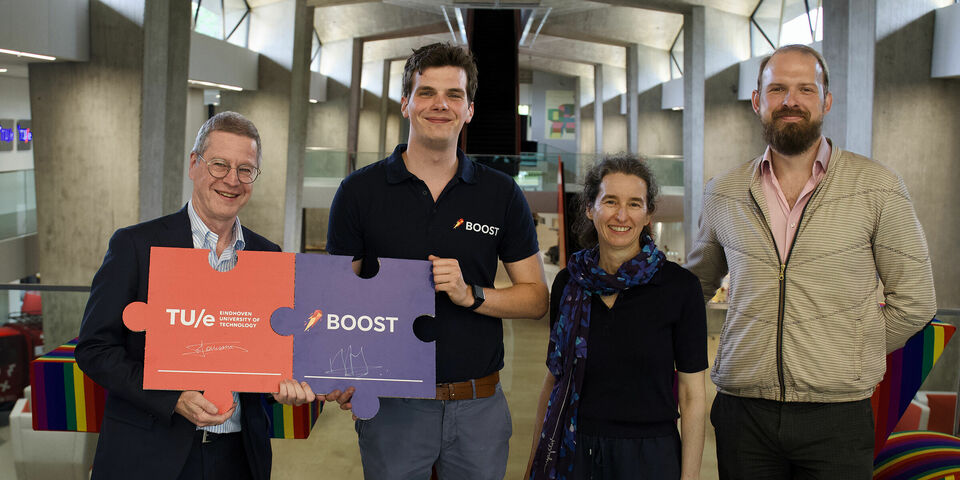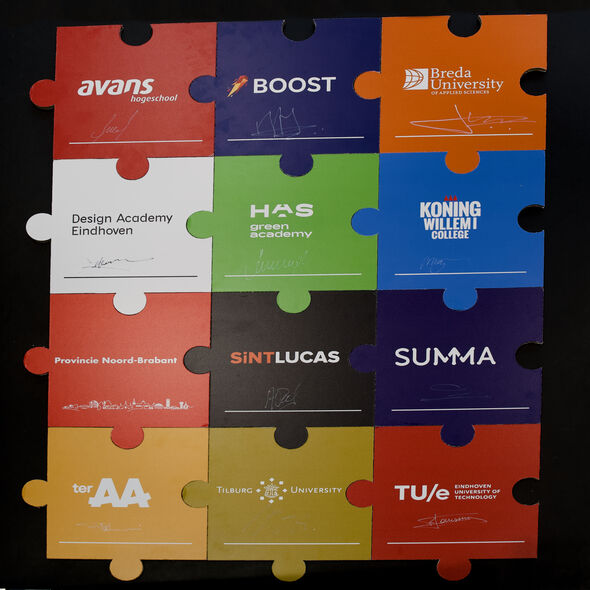Institutions join forces for student team ecosystem Brabant
Enabling all students to participate in a student team – regardless of their educational level or field of study – is the goal of a new agreement signed by ten educational institutions in North Brabant. The concept of student teams, which began at Eindhoven University of Technology (TU/e), is now expanding into a province-wide collaborative effort.
This new partnership aims to create more student teams and to make them more diverse in terms of level and field of study. Students from vocational (mbo), applied sciences (hbo), and scientific education (wo) will work together in the same team. It should become easier for students to join teams from other institutions. This could happen, for instance, through a minor program or an internship, with the student team itself acting as the client. Currently, most TU/e teams are composed largely or entirely of university students.
The initiative for the agreement comes from BOOST, an organization founded by five former TU/e team members. Its mission is to professionalize student teams and strengthen cooperation between educational institutions. According to Maarten van den Elshout, BOOST’s community manager, TU/e teams could benefit greatly from having more vocational students on board. He experienced this firsthand as a member of TU/Ecomotive. “We had developed a beautiful 3D model, but it turned out to be way too complex to actually build. The hands-on expertise of an mbo student could have warned us about that much earlier.”
Reveal moments
Van den Elshout also sees opportunities when it comes to the “reveal moments” that many student teams organize – events that are often outsourced to external companies. “But students in the all-round stage and event technician program at SintLucas could handle those, too.” In short, plenty of potential. And according to Van den Elshout, the willingness to collaborate is already there among the institutions. This agreement should help ensure that the collaboration actually happens.
Each institution will appoint a coordinator responsible for supporting students in setting up new student teams, guiding existing ones, and facilitating collaboration with other educational institutions. These coordinators will meet every few months in sessions organized by BOOST, Van den Elshout explains. “During those sessions, we assess how things are going and identify new opportunities. We also focus on specific themes, like how to integrate student team participation into the curriculum, so students can earn credits for their work.”
Structural collaboration
The institutions have committed to working together in a structural way, pledging to support one another and share the necessary information and resources. This should lead to the development of a full-fledged ecosystem for student teams in North Brabant. Together with BOOST, the institutions will also formulate a joint vision on talent development. A draft of this vision is already in place and is meant to provide guidance for institutions in properly supporting student teams.
According to Van den Elshout, when tangible changes will be visible depends on each individual institution. But during the signing of the agreement, he noticed a great deal of enthusiasm among the board members for the initiative.



Discussion